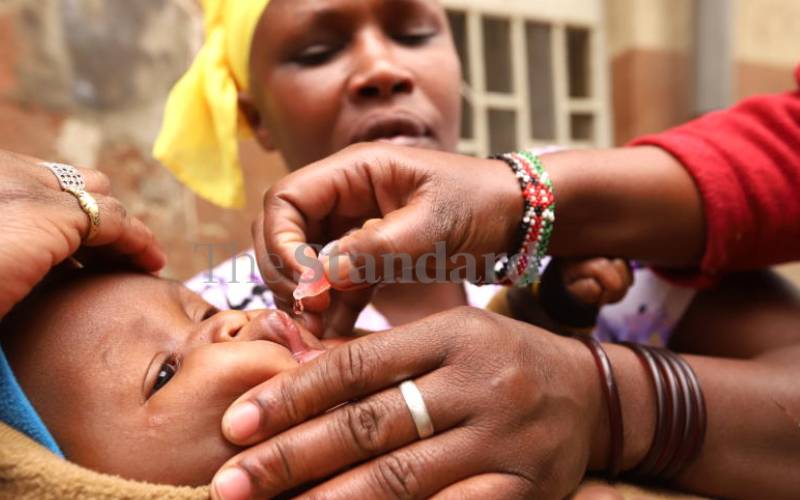

Kenya is among countries across the world that have been urged to integrate immunisation and nutrition programmes to prevent stunted growth and wasting among children.
In a policy brief co-authored by Gavi, the Vaccine Alliance and Scaling Up Nutrition (SUN) Movement, governments are urged to prioritise reaching zero-dose children with immunisation, nutrition and other essential services. Zero-dose children are those who do not receive a single shot of the most basic life-saving vaccines.
“Countries must be enabled to advance smart joint packages of support on the ground, where it matters the most,” said Gerda Verburg, United Nations assistant secretary general and SUN Movement coordinator.
The policy brief titled, Equity from birth; an integrated approach to immunisation and nutrition was launched on October 28.
Gavi and SUN said delivering immunisation and nutrition services together will ensure more people can be reached, especially the vulnerable, women and children.
The initiative will also contribute towards building communities that are resilient to Covid-19 and future pandemics.
The policy brief says by 2022, Covid-19 could result in additional 2.6 million children suffering from stunting and 9.3 million suffering from wasting.
In addition, globally at least 22.7 million children missed out on vaccination in 2021, 3.7 million more than in 2019.
“By integrating immunisation and nutrition efforts, and allowing vaccines and good nutrition to be delivered together, we can ensure we reach the most vulnerable populations, effectively and efficiently, to help enhance equity across the world,” said Anuradha Gupta, Gavi Deputy Executive Officer.
“Malnutrition and infectious diseases cause millions of preventable childhood deaths every year, and contribute to a vicious cycle of poor health, stunting, poverty and exclusion,” said the policy brief.
On the other hand, malnutrition – both undernourished and overweight – can severely decrease Covid-19 survival rate, added the report.
In Kenya, about 652,960 children are malnourished and require immediate treatment, according to August 2021 reports by the Kenya Nutrition Situation Overview, and National Drought Management.
Of the cases, 50,592 children are from Turkana County.
Dr Githinji Gitahi, CEO Amref Health Africa, said: “It takes a great deal of effort for health workers to reach the most vulnerable children during immunisation campaigns. If they could use the opportunity to also screen for malnutrition or provide Vitamin A supplementation or therapeutic foods, for example, they could make a big difference in children’s lives.”
Achuman Emoni stretches her hands, illustrating the vast distance she has travelled to reach the…
During a session held at Africa Health Agenda International Conference in Kigali, Rwanda, on 4th…
Amref Health Africa, in collaboration with the Turkana County Department of Health Services, introduced the…
Amref Health Africa, in collaboration with the Turkana County Department of Health Services, introduced the…
Over the past six years, Amref Health Africa has positioned itself as a leading voice…
Africa has made significant strides in advocating for health research and development, yet gaps in…